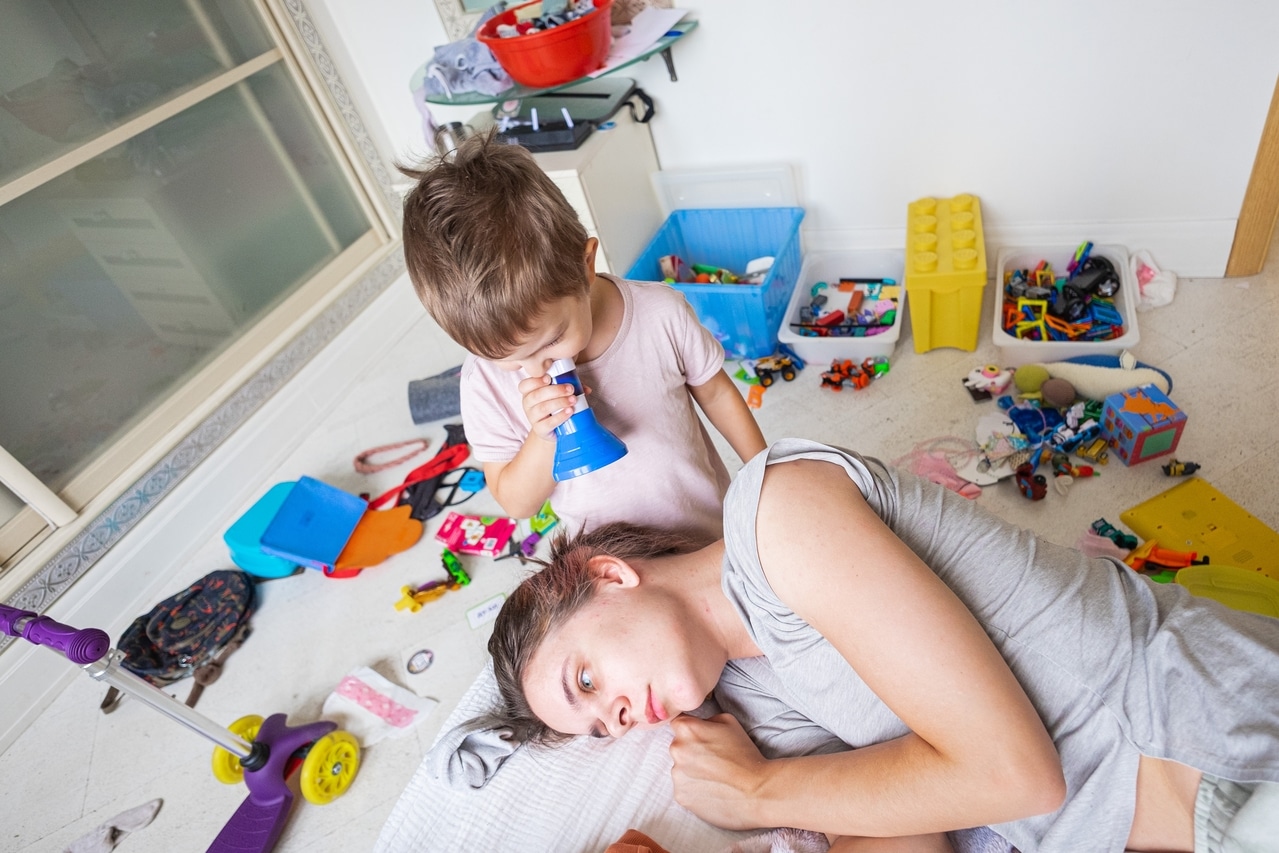Having a baby can be an equally rewarding and challenging experience for parents. Most parents report that their social, relational and emotional lives change greatly in response to this profound event. Consequently, amidst all the excitement and happiness, it is very natural to feel overwhelmed.
The overwhelm, however, is rarely spoken of. New parents, particularly women, are expected to feel exhilarated and fulfilled at all times. This context leaves little space to have conversation around other emotional experiences. In truth, contrasting this expectation, most new mothers experience baby blues, including bouts of crying, sadness and anxiety in response to childbirth. For some parents, the experience might be more intense, and even lead to a minor or major depressive episode. This is known as postnatal depression, reportedly experienced by up to 15% of women and less commonly, fathers as well.
Yet in this heavy social expectation of happiness, postnatal depression often goes undetected and consequently untreated. The implications of this can be immense, for the parent themselves, their partner and their child. It is thus important to speak about this experience. This article attempts to do the same by first differentiating between baby blues and postnatal depression and then going on to describe symptoms of postnatal depression to bring more clarity on an important but often overlooked subject.
In This Article
Baby Blues vs Postnatal Depression
The American Psychology Association defines baby blues as “a colloquial name for the transient depressive symptoms experienced by many women during the first 10 days after giving birth.” Baby blues are a common experience, most likely caused by hormonal shifts postpartum. Some of the symptoms of baby blues include crying for no apparent reason, impatience and irritability, mood changes, and fatigue. These symptoms subside without any intervention within a few days, and social support can be very helpful.
Conversely, postnatal depression is significantly more intense in terms of severity, impact and duration. It is defined as “a major depressive episode or, less commonly, minor depressive disorder that affects some women within 4 weeks to 6 months after childbirth”. Recent studies suggest that fathers might also be susceptible to this mental health concern. Postnatal depression can benefit from professional attention, and a clearer understanding of what might be going on. Given below are some symptoms to look out for.
Symptoms of Postnatal Depression
Experiences of postnatal depression are unique and vary from parent to parent, the most prominent of which are described below. Because of the nature of this mental health concern, it is best to seek timely professional help. Virtual therapy is a viable option for those parents who cannot leave their babies home. Some of the best online therapy apps such as Wysa can provide very helpful support to navigate through this.
1. Low mood and “emptiness”
Intense low moods, incessant crying and feeling “empty” or emotionally numb are important features of postnatal depression. The low mood might be persistent and most parents even notice reduced interest in activities they enjoyed before having the baby. Low moods for parents might look like lack of interest or enthusiasm for the baby, difficulty feeling any love or emotional connection with the new born or a general sense of disconnect from their own emotions.
2. Sense of helplessness
Many parents experience loss of control and consequently, an intense sense of helplessness in response to the changes in their lives. The helplessness is manifold. For some, it relates to the difficulty in regulating one’s own emotions and the inability to cope. For others, it accompanies the challenges of parenting and feeling trapped in this situation. Another aspect is the impairment in decision making and incapacitating concern around making the right choices for the baby.
3. Feelings of worthlessness
Postnatal depression often leaves parents feeling a sense of inadequacy and not being good enough, overwhelmed by the responsibility of caring for the newborn. The consequent feelings of worthlessness might look like believing that they are not taking sufficient care of the newborn or not being present enough for their child. They might feel despondent and unworthy of playing the role of a parent.
4. Anxiety and panic attacks
Anxiety and panic attacks during postnatal depression are often focused around the well-being of the child or an inadequacy of self. This might look like fearing that the child might be hurt or injured in some way or that the parent might not be able to protect them. Sometimes, it could be situation specific, such as when they are left alone with the child. Alternative treatments for anxiety have been proven to be effective. However, if the anxiety does not stop or is at least reduced to a manageable level, it is better to discuss it with a medical professional.
5. Excessive anger, irritability or rage
Experiences of intense anger, rage and irritability are commonly experienced, particularly in response to situations they feel helpless or powerless. The anger is also reflective of a mismatch between expectations and reality, and consequently, can be directed towards self, the baby or other caregivers. The anger with self might come from not meeting one’s expectations of parenthood. With the partner, it might come from not receiving the support they anticipated and can even take the form of questioning or regretting the relationship.
6. Feelings of guilt and shame
Postnatal depression comes with an experience of guilt and shame in response to their emotional upheaval. For many parents, because they did look forward to having this child, feeling sad feels wrong. There is also immense guilt for not feeling well enough to take care of and be there for the child. An attached sense of shame stems from not being ecstatic about having a child and becoming a parent.
7. Suicidal thoughts and thoughts of harm to self or baby
Many parents report experiencing suicidal thoughts focused on themselves. The hopelessness and helplessness coming with postnatal depression can convince individuals that their partner and baby would do better without them. For some, suicidal thoughts might include the baby for the fear of leaving them behind, alone and helpless. Parents also report experiencing highly unsettling intrusive thoughts around harming self and/or the baby. Both suicidal and intrusive thoughts are very distressing to the individual, and can accentuate the sense of powerlessness and shame that already accompanies this experience.
Conclusion
Postnatal depression can be intensely isolating and debilitating. With adequate support, however, it can be effectively managed through therapy and medication. One of the primary reasons why access to this support is delayed or denied is family members’ and health care professionals’ reluctance to acknowledge and accept this parent’s emotional experience. Creating awareness around postnatal depression is thus necessary. It is important for family members and health care professionals to be vigilant about these symptoms and offer support and understanding when needed.










![Home Renovation Guide [2025]](/app/uploads/2021/04/design-hacks-1-378x300.jpg)
